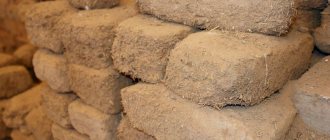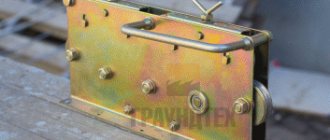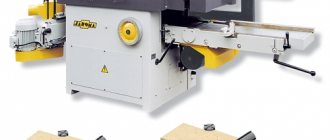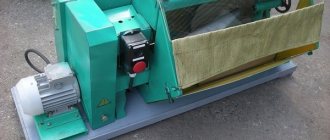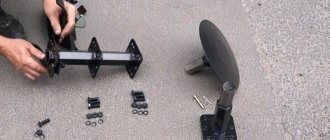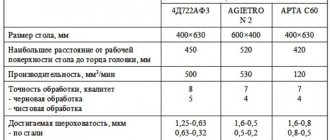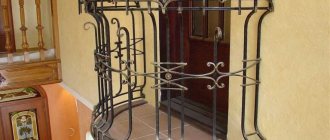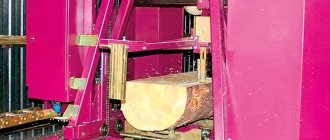Nails are fasteners that are in demand among private developers, craftsmen who work with wood, and are purchased en masse by construction organizations. Manufacturing nails can be a good option for a small business, and if the demand for fasteners is stable, then expand the business to the scale of a medium-sized enterprise. To begin with, it is enough to buy one machine for the production of nails. We will tell you in this post what the operating principle of this equipment is and what models exist on the market today.
Wire nailing machine
The main material for the production of nails is wire. An entrepreneur needs to find suppliers of raw materials who will sell them at minimal prices. Since the cost of raw materials forms the cost of the future product, it is important to make it as low as possible. The profit of the entire business depends on this indicator. The material for the production of nails is usually low-carbon steel wire of grades St 1, 2, 3, KP or St 3 PS. Raw materials must comply with GOST 3282-74. It is supplied in the form of reels and weighs between 700 and 1300 kg.
Production process
The product manufacturing process is divided into several stages:
- The wire is fed into a special device on which a chopping knife is installed.
- The workpiece is cut. The length is specified in the settings.
- The semi-finished product enters a punch equipped with strikers, which complete the cycle - forming a head and sharpening the tip.
- The slider drops the finished nail into a receiving container.
The procedure is continuous until the spool runs out of wire. The unit operates fully automatically. Human intervention is required only after the skein on the reel runs out. The equipment operator does not need to receive special education, which will significantly save the business budget.
On average, the efficiency of the machine ranges from 100 to 600 pieces per minute and 3 tons of products per shift. Weight: from 500 kg to 2.5 tons , power varies from 3 to 20 kW .
Technology and features of nail production
Nails as a product are a very simple subject, especially when it comes to their most common types - round construction nails, wallpaper, slate, and so on. Making dowel-nails is a more complex process; it will require special equipment and a more complex production line.
For most types of products, the production technology turns out to be very similar.
- The basis for them is wire of different sections and from different materials. The wire is offered in spools, so the first stage of production consists of unwinding and straightening the material.
- Then the wire goes to a roller straightening device - these are 2 teeth fixed into mandrels. The chisels grab the wire and push it into the impact structure of the nailing machine.
- The nailing machine cuts blanks to specified sizes. To do this, the wire is inserted into the impact device until it stops, clamped and cut off. During the reverse movement, the workpiece is released and held by the sleeve. A cap will be formed on the workpiece in place of the cut fragment. The impact device returns to its original position.
- Formation of the cap, production of notches and points - the heads are obtained using 2 semicircular disks with grooves. When formed, the clamping device secures the discs so that the grooves face each other, forming a round hole. Due to this, notches are formed on the head. The sharp end of the nail with a point angle of no more than 40 degrees is formed automatically due to the design of the pliers.
- Finished products are dumped into a bunker, sent to a warehouse and packaged.
The production of different types excludes some operations - for example, a machine nail does not have a point, or includes additional ones - applying a protective layer of zinc, copper, brass, but the general technological scheme remains unchanged.
The video below discusses the nail production technology:
Factors influencing price
On the market you can find both domestically produced models and foreign analogues. Often, imported devices do not have decisive advantages, so there is no point in overpaying when purchasing them. Remember that no one is insured against factory defects, and returning a low-quality product promises additional transport and customs costs.
Russian devices are also chosen because it is much easier to find spare parts or components within the country than to order parts abroad.
The scale of production must be . of up to 5 kW will be enough , but for a factory, installations with a power of 20 kW . This creates a significant difference between the output parameters of hardware, and therefore a difference in the cost of purchased equipment. Please note that discounts are possible for entrepreneurs ordering it in bulk.
The key indicator that determines the price of a device is the length and diameter of the product planned for release. A machine that produces nails with a length of 30 to 70 mm with a diameter of 1.6 to 3 mm will cost about 700,000 rubles , and with parameters 2 or 3 times less from 450,000 .
Types of nails
When planning to create a business, an entrepreneur must first study the demand and clarify the assortment of the workshop. The price of equipment for the production of nails depends on this: machines that produce large or composite products cost much more. There is plenty to choose from - today, in construction, repair or household work, at least one and a half dozen varieties of fasteners of different lengths, shapes and diameters are used. Here are the most common types of nails:
- Construction. They are distinguished by a smooth surface and notches located near the small cap. To increase resistance to corrosion, they are galvanized. Uncoated products are suitable for temporary structures;
- Screw. They have a multi-start screw thread for 2/3 of the length of the rod, and therefore do not split the wood during the driving process, but are screwed into it. Designed for connections with high strength requirements;
- Tolevye. Thanks to a wide cap of 2.5–3 rod diameters, they prevent ruptures of the rolled material and hold soft roofing felt, plastic film or fiberboard. For roofing work, zinc-coated nails are used;
- Finishers. They are used primarily in finishing work to secure lightweight materials (plinths, glazing beads, platbands, lining). Due to the small head, the nails practically do not spoil the appearance of the product;
- Ruffed. They have frequent transverse annular notches on the rod, which increases the fastening strength five times. Rough nails are almost impossible to pull out, so they are more suitable for permanent connections;
- Slate. They are equipped with an overhead head with a diameter of 12 mm, which helps them securely hold heavy sheets of slate. To protect from the environment, slate nails are galvanized;
- With double cap. This allows the nails to be used in dismountable joints, since they enter the material only up to the first head. The second remains outside and makes it easier to remove the fasteners with a tool;
- With a plastic cap. Suitable for fastening lightweight sheet roofing materials - ondulin, bitumen slate. To simplify the selection of hardware to match the color of the coating, the heads are made of plastic in different shades;
- Staples. Thanks to the U-shape, they effectively attach mesh or wire when arranging barriers. They are produced mainly from galvanized steel, and therefore do not rust or oxidize. They have a length of 20–40 mm;
- Dowel-nails. They are used when fastening elements to concrete structures. To overcome the resistance of the material, these nails have a thicker core. When installing them, special guns are used.
Types of wire-nail units
Based on the diameter and length of the finished product, they are divided into 4 categories:
- Diameter up to 2.1 mm. Maximum length - 60 mm.
- Diameter up to 4. Maximum length - 120.
- Diameter up to 6. Maximum length - 200.
- Diameter up to 9. Maximum length - 320.
"AG4115"
Price examples:
- A nailing machine with a capacity of 450 pieces per minute, a power of 1.5 kW and a weight of 560 kilograms, producing hardware with a diameter of 0.9-1.6 mm and a length of 9-25 mm will cost 450,000 rubles .
- Its analogue “AG4115” , ready to produce nails with a maximum width of 3.1 mm and a length of up to 80 mm, is sold for 480,000-700,000 rubles .
- "AG4116" , with maximum parameters 4x120 mm, costs up to 720,000 rubles .
- The cost of its brother “AG4117” , sharpened to 5x150 mm, will be 750,000 rubles .
- The price tag for "AG4118" , which produces products with characteristics reaching 6.3 × 200 mm, fluctuates at the level of 800,000-900,000 rubles .
- The cheapest in the line of devices turned out to be “ASG 4.02” , which is capable of producing a nail up to 120 mm long. The average price of the mechanism is 420,000 rubles .
"ASG 4.02"
Features and Service
AG4116 can be called one of the most popular conveyors. The work uses steel wire, the diameter of which is 0.8–8.0 mm. It is sold in reels from 5 to 1000 kg. This version weighs about a ton, has dimensions of 195x116x106 cm, and is equipped with an asynchronous three-phase motor with a squirrel cage rotor (4A112M4U3). The productivity of the device reaches up to 500 units. products per minute. You can also use galvanized metal threads on this installation. It is noticeably different in strength and elasticity.
Machine for the production of nails AG4116
Device diagram of the AG4116 machine
Azov cars also have excellent performance:
- length, width and height of the structure – 150x190x110 cm;
- weight – 2900 kg;
- electric motor – 5.5 kW;
- volumes per minute – 525 pcs.
This nail production machine produces construction hardware with a circumference thickness of 0.5 cm and a length of up to 15 cm. A distinctive feature of this mechanism is the adjustment of the longitudinal size of the rod. For its full operation, like most conveyors, a voltage of 380 V is required.
Some prototypes of this technology vibrate strongly when turned on. Therefore, it is important to install it correctly on the floor.
Installation should be carried out on a concrete base, and the legs should be fixed with anchors.
An easier approach is to use washers that dampen vibration. If this is not done, constant vibration will lead to loosening of the bolts, and the nailing machine will eventually become unusable.
The servicing procedure also includes lubrication of the operating elements: there is a lubrication map on the panel, which indicates all the places for filling specialized oil. This must be done so that the moving parts of the device do not jam.
Sales organization
Marketing is the hardest and most important section of a business plan: nails are easy to produce, but incredibly difficult to sell.
The reason is the oversaturation of the niche: today the price list of any supplier presents a huge range of products of all shapes and sizes. To take a place in the market, a businessman will have to either improve the quality of products or reduce the price: fortunately, the high profitability of the business allows you to do both. Of course, the priority is to find wholesale buyers: even a small machine produces much more products than private customers can purchase. Interested in supplying large quantities of nails:
- Enterprises producing furniture and carpentry;
- Workshops for the production of frame houses;
- Construction companies;
- Teams of specialists performing construction and repair work;
- Construction markets and wholesale centers;
- Hardware and construction stores.
To attract such partners, regular advertising is useless: leaflets, flyers, billboards and newspaper ads are unlikely to impress them. Therefore, you need to start promoting products on specialized sites on the Internet and hire a sales manager who will send commercial offers to potential clients, hold meetings with them and negotiate deliveries.

